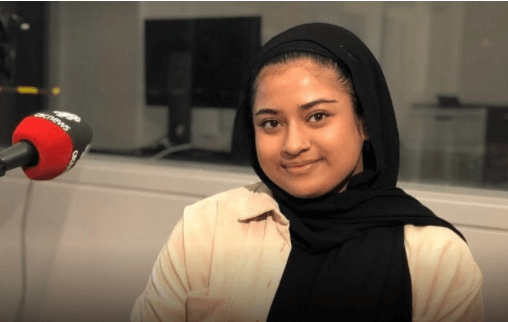
This Ontario teen was 12 when she became a caregiver. She’s not alone .
Published in CBC News January 29, 2020, written by Wes Gilbertson
A new podcast is shining light on young caregivers who take care of a loved one. Western University student Samiha Rahman tells London Morning she became her mother’s caregiver at age 12.
Samiha Rahman’s experience is featured in a new podcast about young caregivers
Samiha Rahman became a young caregiver at the age of 12 after her mom was diagnosed with ALS.
The 2011 life-changing prognosis meant Rahman had to begin preparing meals, feeding her mom and keep her moving, while passing up on fun with her friends.
“It changed all of our lives,” said Rahman. “She went from walking, being a normal mother, being a great mother, to not being able to walk, using a walker, slowly to a wheelchair and then to bed rest.”
As time went on, her mom’s disease progressed, and Rahman says she played a vital role in her care.
“I’d go to school in the morning, I’d come home and then my mom was there. I’d have to do little tasks for her throughout the day.”
Rahman’s story is one of many that will be featured in a new podcast series by The Change Foundation called Hidden Voices: Stories of Young Carers.
According to the independent Ontario health policy think-tank, more than 500,000 youth across the province have spent time taking care of a sick family member. That means they’re taking on parental responsibilities, while also juggling school, jobs and a social life.
Of course, it was frustrating, but looking back, I see the bigger things .-Samiha Rahman
Join our fight to #EndALS!
Sign up as to receive periodic email updates and join our circle of supporters!